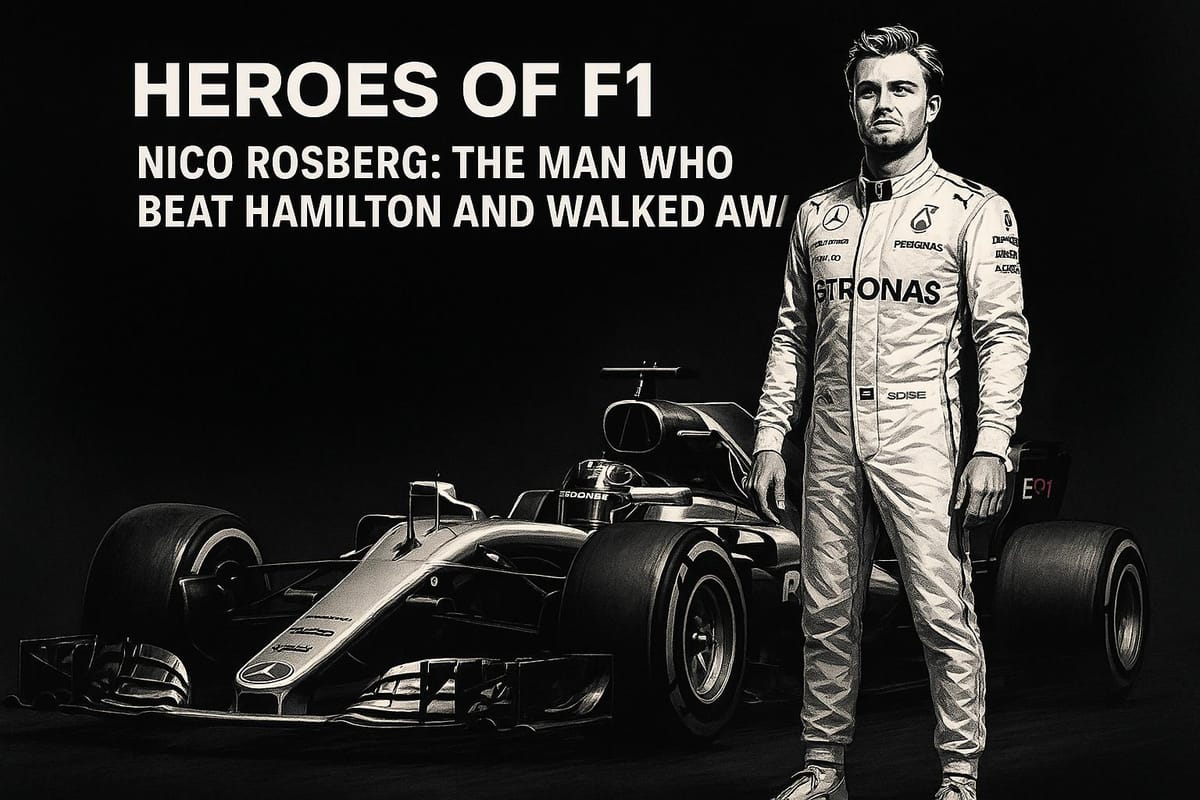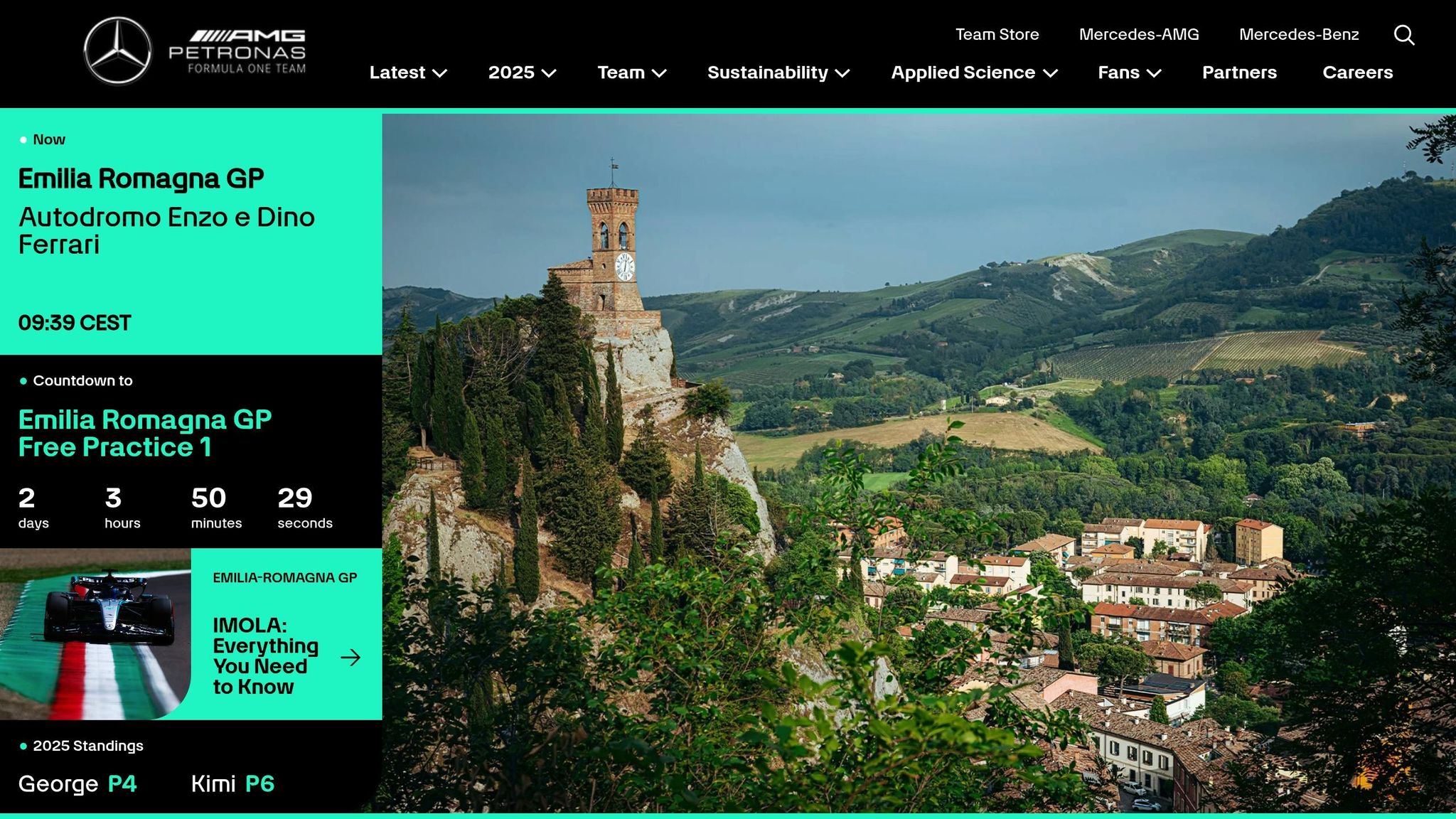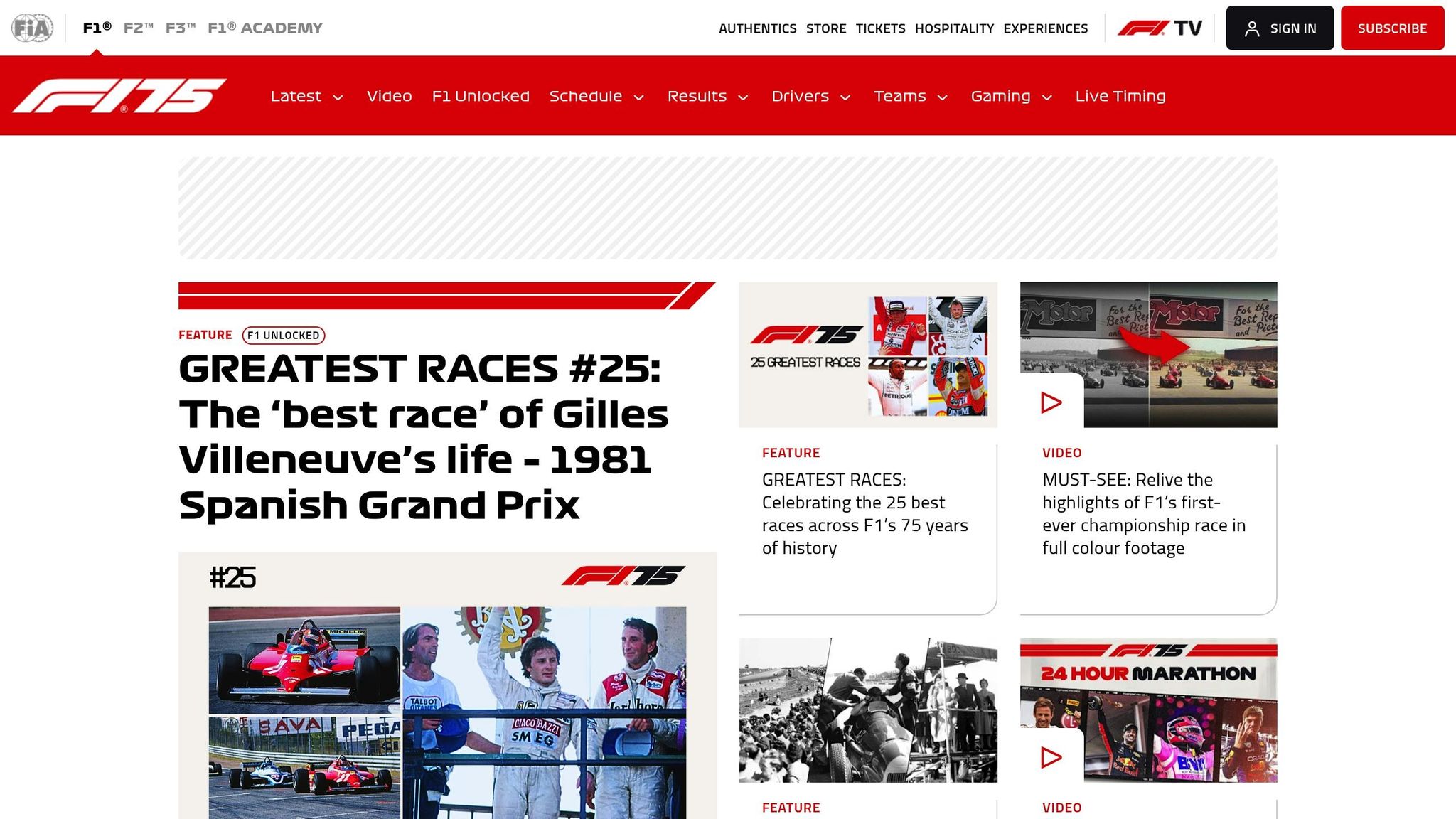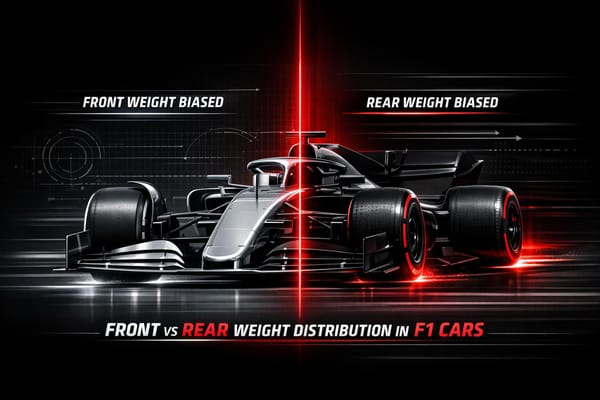Heroes of F1: Nico Rosberg: The Man Who Beat Hamilton and Walked Away
Explore the extraordinary journey of a Formula One champion who conquered his rival and chose to retire at the peak of his career, prioritizing personal fulfillment.

Nico Rosberg’s 2016 Formula One World Championship win was historic. He defeated Lewis Hamilton, his teammate and one of the greatest drivers in F1 history, in identical machinery. Just five days later, Rosberg shocked the world by retiring at the peak of his career. His decision wasn’t driven by external pressures but by personal fulfillment - he had achieved his lifelong dream and chose to step away on his own terms.
Here’s what makes Rosberg’s story unforgettable:
- The Rivalry: Rosberg and Hamilton’s intense competition at Mercedes (2013–2016) produced some of F1’s most dramatic moments, including collisions, psychological battles, and controversial team orders.
- The 2016 Season: Rosberg won 9 races, secured 16 podiums, and edged Hamilton by just 5 points to claim the title. His mental preparation and consistency were key.
- Retirement Decision: Rosberg retired citing the immense physical and mental demands of F1, prioritizing his family and personal life over further championships.
- Legacy: Rosberg’s victory disrupted Hamilton’s dominance, reshaped team dynamics at Mercedes, and inspired younger drivers with his focus on mental resilience.
Rosberg’s story is a rare example of a champion walking away at the top, proving that success isn’t just about winning - it’s also about knowing when to let go.
Why I left F1 as World Champion 🏁👋
The Mercedes Teammate Battle

When Nico Rosberg and Lewis Hamilton joined forces at Mercedes, it didn’t take long for their partnership to ignite one of the fiercest rivalries in Formula 1 history. Between 2013 and 2016, they dominated the grid, winning an astonishing 54 out of 78 races together. However, their success came with a hefty price - an intense battle that would leave a lasting mark on their careers.
From Friends to Rivals: Early Years
Rosberg and Hamilton’s relationship, once rooted in their karting days, began to crumble in 2013. The turning point came at the Malaysian Grand Prix, where team orders forced Rosberg to stay behind Hamilton. This moment planted the seeds of discord, and their competitive edge only sharpened from there.
Statistically, Hamilton held the upper hand with 32 wins and 55 podiums, compared to Rosberg’s 22 wins and 50 podium finishes. Even in qualifying, Hamilton edged Rosberg with a 42-36 record. But the rivalry wasn’t just about numbers - it was personal.
Major Track Incidents
Several key moments defined the animosity between the two:
- 2014 Monaco Grand Prix: Rosberg’s controversial qualifying incident led Hamilton to publicly declare their friendship over.
- 2014 Belgian Grand Prix: A collision caused by Rosberg, which he later admitted was intentional to "prove a point", drew backlash and a stern reprimand from the team.
- 2016 Spanish Grand Prix: A misstep with engine modes triggered a first-lap crash, taking both drivers out of the race.
As tensions escalated, Mercedes team boss Toto Wolff had to step in. After particularly aggressive clashes, Wolff made it clear that the team would not tolerate such behavior, stating, "This cannot - and will not - happen again".
But the rivalry wasn’t confined to the racetrack. The psychological battles between the two were just as intense.
Mental Game Strategies
Off the track, both drivers engaged in a game of mental warfare. Rosberg, in particular, leaned on tailored mental strategies, saying, "because that's worked for me until now". The mind games reached their peak during the 2016 Abu Dhabi Grand Prix. In a desperate bid to clinch the championship, Hamilton defied team orders by deliberately slowing down to back Rosberg into the chasing pack.
The strain of their rivalry often spilled over into public view. One infamous moment occurred at the 2015 U.S. Grand Prix, where a frustrated Rosberg threw his cap at Hamilton after the race. Their animosity became so severe that Mercedes reportedly considered suspending both drivers to regain control of the team.
This volatile dynamic between Rosberg and Hamilton wasn’t just about racing - it was a psychological battle that pushed both men to their limits.
2016: The Championship Season
Early Season Dominance
Nico Rosberg kicked off his 2016 season with an incredible streak of victories. He won the first four races in Australia, Bahrain, China, and Russia, establishing a commanding 43-point lead over Lewis Hamilton. His performance in China was particularly impressive, showcasing a flawless race that highlighted his rising confidence and determination to claim the title. Rosberg's mastery of the Mercedes W07 Hybrid, particularly in managing energy systems, gave him a crucial edge over his teammate. This early success set the tone for the intense battles that followed later in the season.
Critical Race Performances
As the season progressed, the championship battle heated up, with several key races defining Rosberg's campaign. The Monaco Grand Prix was a challenging moment - brake issues in difficult conditions forced him to settle for a strategic seventh-place finish, minimizing his points loss. However, his performance at Suzuka was a turning point. Starting from pole, Rosberg delivered a dominant win, extending his lead to 33 points with just four races remaining. This victory brought him within touching distance of the championship.
| Race Performance Stats | Rosberg |
|---|---|
| Total Wins | 9 out of 21 |
| Podium Finishes | 16 |
| Points Scored | 385 |
| Pole Positions | 8 |
| Championship Margin | 5 points |
Mercedes Team Operations
Behind the scenes, Mercedes worked hard to manage the growing tension between their two drivers. They implemented stricter rules to govern on-track battles and even conducted separate debriefs for Rosberg and Hamilton to avoid further conflicts. While team orders were briefly considered, the drivers were largely allowed to race without interference.
The season reached its dramatic conclusion in Abu Dhabi. In a controversial move, Hamilton deliberately slowed the pace, attempting to back Rosberg into other competitors. Despite the immense pressure, Rosberg kept his cool, finishing second to secure the world championship by just five points.
Rosberg's contributions extended beyond his driving. His detailed technical feedback and simulator work played a key role in refining the car's performance throughout the season. This combination of skill, strategy, and consistency culminated in Rosberg achieving his first - and only - Formula 1 world championship, marking the high point of his career.
Retirement Decision Analysis
F1's Physical and Mental Demands
Formula 1 is not for the faint of heart. Drivers face relentless physical challenges - enduring high G-forces, intense muscular strain, and elevated heart rates throughout races. On top of that, the mental toll is staggering. The constant glare of media attention, the grueling technical debriefs, and the need for razor-sharp strategic planning all add to the pressure. For Nico Rosberg, these demands were amplified during his championship season, as he went head-to-head with a fierce competitor like Lewis Hamilton. It was a year that pushed him to his limits and led him to deeply reassess his priorities.
Personal and Family Factors
Rosberg’s decision to retire wasn’t just about the physical and mental toll - it was also deeply personal. Reflecting on his journey, he shared:
"After 25 years in racing, it has been my dream, my 'one thing' to become Formula One World Champion. I have climbed my mountain, I am on the peak, so this feels right." - Nico Rosberg
After finally achieving his lifelong dream, Rosberg chose to shift his focus to his family and personal life rather than chasing more titles. For him, the satisfaction of reaching the pinnacle of his career outweighed the desire to continue competing.
Champions Who Left Early
Rosberg wasn’t the first champion to retire at the top, but his reasons set him apart. Here's how his decision compares to others who also stepped away at their peak:
| Champion | Year | Circumstances | Comparison to Rosberg |
|---|---|---|---|
| Jackie Stewart | 1973 | Retired after his third title; influenced by tragedy | Driven by tragedy, unlike Rosberg |
| Alain Prost | 1993 | Retired as champion with a planned exit | Similar timing, but different reasoning |
| Mike Hawthorn | 1958 | Health issues and the loss of a teammate | Motivated by health, not personal goals |
| Nigel Mansell | 1992 | Moved to IndyCar due to contract disputes | Continued racing, unlike Rosberg |
While many of these champions were influenced by external factors - whether tragedy, health concerns, or disputes - Rosberg’s decision was deeply personal. He walked away on his own terms, having achieved exactly what he set out to do. His choice highlighted a different kind of victory: the importance of knowing when to step back for personal fulfillment.
Impact on Formula One

Mercedes Era Success
Rosberg's 2016 championship win disrupted Hamilton's dominance at Mercedes, sparking a rivalry that pushed both drivers to their limits. While Rosberg secured 9 victories compared to Hamilton's 10, his unwavering consistency and calculated strategy reshaped the team's hierarchy. His ability to prepare mentally for the challenge proved decisive in overcoming a rival with immense natural talent. This unexpected victory became even more striking with his sudden retirement from Formula One shortly after.
Career After Racing
After clinching the championship, Rosberg chose to step away from Formula One, leaving many surprised. His decision highlighted the immense physical and mental demands of the sport. By retiring at the peak of his career, Rosberg set a new standard for how drivers might approach the timing of their exits.
Effect on New Drivers
Rosberg's influence extends far beyond race results. His innovative methods for mental and physical preparation have reshaped how younger drivers approach the sport. By employing a mind management specialist and returning to private karting to sharpen both his skills and mental toughness, Rosberg introduced a more holistic approach to driver development.
| Aspect | Implementation | Impact |
|---|---|---|
| Mental Preparation | Worked with a mind management specialist and practiced meditation | Highlighted the importance of mental strength |
| Physical Training | Committed to regular private karting sessions | Showed the value of continuous skill improvement |
Rosberg's all-encompassing approach to excellence continues to inspire up-and-coming drivers, emphasizing the need to pair physical performance with mental resilience in the high-stakes world of Formula One.
Conclusion
Nico Rosberg’s rise from a Williams test driver to a Formula One World Champion is a story of determination, strategy, and perseverance. His 2016 title win wasn’t just about speed - it was a masterclass in mental resilience and calculated decision-making.
Rosberg’s legacy isn’t solely defined by his championship, but by the way he achieved it. His incredible seven-race winning streak showcased his ability to thrive under intense pressure. Beyond that, his meticulous, data-focused approach brought a fresh perspective to F1 strategy. Since retiring, Rosberg has shifted gears into ventures like sustainable technology and business, proving that success on the track can pave the way for meaningful contributions off it.
The rivalry with Lewis Hamilton, famously dubbed the "Silver War", was a defining chapter of his career. Their fierce competition pushed both drivers to their limits and forced Mercedes to adopt unique management strategies. It also underscored the mental toughness required to compete at the pinnacle of motorsport, giving fans some of the most unforgettable moments in recent F1 history.
What makes Rosberg’s story stand out is how he chose to step away after reaching the summit, ending his career on his own terms. His journey reminds us that in Formula One, true greatness comes from more than just speed - it’s about knowing when to seize the moment and when to let go.
FAQs
Why did Nico Rosberg retire right after winning the 2016 Formula 1 World Championship?
Nico Rosberg shocked the Formula 1 world when he announced his retirement just days after securing the 2016 World Championship. For Rosberg, winning the title was the pinnacle of his career - a lifelong dream fulfilled. Rather than continue, he chose to walk away while at the top of his game.
He explained that stepping back would allow him to focus on his personal life and avoid the grueling mental and physical strain that comes with competing at such an elite level. While his decision left fans and the F1 community stunned, it was a clear statement of his desire to leave the sport on his own terms.
How did Nico Rosberg and Lewis Hamilton's rivalry impact their careers and the Mercedes team?
The rivalry between Nico Rosberg and Lewis Hamilton at Mercedes stands out as one of the fiercest battles in Formula 1 history. Their intense competition pushed both drivers to their limits, with Rosberg ultimately emerging victorious as the 2016 World Champion. That season was marked by relentless on-track duels and off-track drama, showcasing the extraordinary level of skill and determination from both sides. However, this high-stakes rivalry also created noticeable friction within the team, leading to moments of internal strife and challenges in maintaining a unified front.
For Rosberg, this rivalry was a defining chapter in his career. While defeating Hamilton and securing the championship was a monumental achievement, the journey came with a heavy cost. Just days after his triumph, Rosberg stunned the racing world by announcing his retirement, citing the immense emotional and mental strain of their competition. This intense dynamic not only shaped the legacies of both drivers but also underscored the complexities of managing two elite competitors within one team.
How did Nico Rosberg's mental and physical preparation influence the next generation of Formula One drivers?
Nico Rosberg's dedication to both mental and physical preparation has left a lasting mark on the next generation of Formula One drivers. His emphasis on mental resilience, demanding fitness regimens, and a sharp strategic approach highlighted the importance of excelling off the track as much as on it.
Rosberg's focus on mental strength and detailed planning showed that winning in F1 goes beyond natural ability. His approach has inspired up-and-coming drivers to embrace a well-rounded mindset - combining mental grit, physical training, and strategic insight to navigate the intense pressures of the sport.




